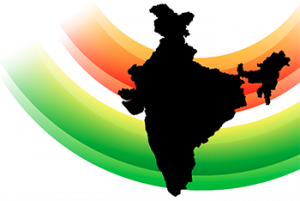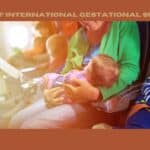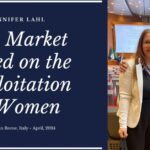It’s that time of year again, when I look back over the past twelve months with an eye toward identifying those whose lives and contributions actively promoted and affirmed our shared human future (winners), and those who did not (losers). You can review last year’s picks here.
Winners:
 Patrick T. Smith, Ph.D., will receive the 2019 Paul Ramsey Prize. Smith, a professor at Duke Divinity School, joined ranks with Farr Curlin, M.D., also at Duke, who received the 2018 Paul Ramsey Prize. Dr. Gilbert Meilaender, one of our Paul Ramsey Institute Scholars, said, “Trained both as a philosopher and as a theologian within the black Baptist tradition, Patrick Smith integrates both kinds of expertise in a way that Paul Ramsey would surely have appreciated.”
Patrick T. Smith, Ph.D., will receive the 2019 Paul Ramsey Prize. Smith, a professor at Duke Divinity School, joined ranks with Farr Curlin, M.D., also at Duke, who received the 2018 Paul Ramsey Prize. Dr. Gilbert Meilaender, one of our Paul Ramsey Institute Scholars, said, “Trained both as a philosopher and as a theologian within the black Baptist tradition, Patrick Smith integrates both kinds of expertise in a way that Paul Ramsey would surely have appreciated.”
 Jennifer Doudna, Ph.D. and William Hurlbut, M.D. joined many in the international scientific community to express their deep ethical concerns for the news of the Chinese scientist, Dr. He Jiankui, who used gene-editing technology to create the first CRISPR edited babies. Doudna is a professor of chemistry and molecular and cell biology at UC Berkeley and co-inventor of CRISPR-Cas9 genome editing. Hurlbut, a research scholar at Stanford University also serves as a Paul Ramsey Institute Scholar. Doudna and Hurlbut have worked together on a project that addresses both the challenges and opportunities of gene editing.
Jennifer Doudna, Ph.D. and William Hurlbut, M.D. joined many in the international scientific community to express their deep ethical concerns for the news of the Chinese scientist, Dr. He Jiankui, who used gene-editing technology to create the first CRISPR edited babies. Doudna is a professor of chemistry and molecular and cell biology at UC Berkeley and co-inventor of CRISPR-Cas9 genome editing. Hurlbut, a research scholar at Stanford University also serves as a Paul Ramsey Institute Scholar. Doudna and Hurlbut have worked together on a project that addresses both the challenges and opportunities of gene editing.
 Rice University also took a bold stand and called for a full investigation into Michael Deem, a bioengineering professor at Rice who said he worked on the project with He Jiankui. “This research raises troubling scientific, legal and ethical questions,” the university said in a statement. Bravo to academic institutions who uphold high ethical standards for their faculty.
Rice University also took a bold stand and called for a full investigation into Michael Deem, a bioengineering professor at Rice who said he worked on the project with He Jiankui. “This research raises troubling scientific, legal and ethical questions,” the university said in a statement. Bravo to academic institutions who uphold high ethical standards for their faculty.
 Carmen Calvo, “the most powerful woman in the Spanish government”, during an interview with the prominent paper, El Pais, had this to say when asked if Spain should allow a regulated form of surrogacy (currently surrogacy is illegal in Spain), “Our position is clear. It is called wombs for rent and it is the latest utilization of women’s bodies, another trade for sale. It is especially serious because it uses the body of the poorest women. There is no value in using euphemisms here.”
Carmen Calvo, “the most powerful woman in the Spanish government”, during an interview with the prominent paper, El Pais, had this to say when asked if Spain should allow a regulated form of surrogacy (currently surrogacy is illegal in Spain), “Our position is clear. It is called wombs for rent and it is the latest utilization of women’s bodies, another trade for sale. It is especially serious because it uses the body of the poorest women. There is no value in using euphemisms here.”
 StopSurrogacyNow, tooting our horn for growing and running this international campaign for three years now. We were happy to learn that the campaign is prominently featured in Renate Klein’s book, Surrogacy: A Human Rights Violation. Klein and her book were one of our winners from last year, but we didn’t know at the time how much she would praise our collective efforts. This year, StopSurrogacyNow added a new NGO, FEMMVA, formed in Mexico and another NGO, Stop Vientres de Alquiler, in Spain, all organized to StopSurrogacyNow in their countries. Onward!
StopSurrogacyNow, tooting our horn for growing and running this international campaign for three years now. We were happy to learn that the campaign is prominently featured in Renate Klein’s book, Surrogacy: A Human Rights Violation. Klein and her book were one of our winners from last year, but we didn’t know at the time how much she would praise our collective efforts. This year, StopSurrogacyNow added a new NGO, FEMMVA, formed in Mexico and another NGO, Stop Vientres de Alquiler, in Spain, all organized to StopSurrogacyNow in their countries. Onward!
 #BigFertility, released in September of 2018 has already sold into 13 countries, been translated into French, Spanish, Italian, in addition to English and is also an official selection in the 2018 Silicon Valley International Film Festival. It’s available for viewing on Vimeo and Amazon Prime!
#BigFertility, released in September of 2018 has already sold into 13 countries, been translated into French, Spanish, Italian, in addition to English and is also an official selection in the 2018 Silicon Valley International Film Festival. It’s available for viewing on Vimeo and Amazon Prime!
 32 Cambodian surrogate mothers have been released from jail and allowed to raise the Chinese children they have given birth to. Cambodia banned commercial surrogacy in 2016 but this past June, when police raided two apartments, they found these poor women who had been hired by wealthy Chinese to serve as paid surrogates. We are happy that these women will not be prosecuted and hope that this story serves as a reminder for why surrogacy must be outlawed around the world.
32 Cambodian surrogate mothers have been released from jail and allowed to raise the Chinese children they have given birth to. Cambodia banned commercial surrogacy in 2016 but this past June, when police raided two apartments, they found these poor women who had been hired by wealthy Chinese to serve as paid surrogates. We are happy that these women will not be prosecuted and hope that this story serves as a reminder for why surrogacy must be outlawed around the world.
 India finished the year with a BIG win, by passing Bill 2016 which bans commercial surrogacy. They closed their borders in 2016, which is great news as it prohibits reproductive tourism in and out of the country, but banning the buying and selling of children is a huge win – as our new film #BigFertility’s tagline says, “It’s all about the money”. Thank you India!
India finished the year with a BIG win, by passing Bill 2016 which bans commercial surrogacy. They closed their borders in 2016, which is great news as it prohibits reproductive tourism in and out of the country, but banning the buying and selling of children is a huge win – as our new film #BigFertility’s tagline says, “It’s all about the money”. Thank you India!
Losers:
 Chinese researcher, He Jiankui, shocked the world with the news that he had created the first genetically edited babies. He insisted that the couples involved with his research were fully informed of the risks involved. But that is the rub with gene editing technology, the risks are unknown and the safety questions have yet to be answered. Director of the National Institutes of Health, Dr. Francis Collins, denounced Dr. He saying this is “a deeply disturbing willingness by Dr. He and his team to flaunt international ethical norms.” Indeed! Dr. He said his only regret was the news was “leaked unexpectedly.”
Chinese researcher, He Jiankui, shocked the world with the news that he had created the first genetically edited babies. He insisted that the couples involved with his research were fully informed of the risks involved. But that is the rub with gene editing technology, the risks are unknown and the safety questions have yet to be answered. Director of the National Institutes of Health, Dr. Francis Collins, denounced Dr. He saying this is “a deeply disturbing willingness by Dr. He and his team to flaunt international ethical norms.” Indeed! Dr. He said his only regret was the news was “leaked unexpectedly.”
 “Even as a furious debate broke out in China over gene-edited babies, some scientists in the US are also hoping to improve tomorrow’s children.” Yes, that is indeed what MIT Technology Review wrote in their story about Harvard’s decision to move forward with gene-editing sperm. Even with the international outrage over genetically edited babies, Harvard seeks to “improve” the next generation by moving forward with making germline changes – meaning the change will not only be present in the child born of gene-edited sperm (or eggs) but the change will be passed onto future generations forever. Scary stuff Harvard!
“Even as a furious debate broke out in China over gene-edited babies, some scientists in the US are also hoping to improve tomorrow’s children.” Yes, that is indeed what MIT Technology Review wrote in their story about Harvard’s decision to move forward with gene-editing sperm. Even with the international outrage over genetically edited babies, Harvard seeks to “improve” the next generation by moving forward with making germline changes – meaning the change will not only be present in the child born of gene-edited sperm (or eggs) but the change will be passed onto future generations forever. Scary stuff Harvard!
 #BigFertility, the industry, not the movie, continues to move full-steam ahead while ignoring the risks to women’s health, but more disturbing, the risks to the health of the children created through assisted reproductive technologies (ART). More came out this year showing the children born of ART are at higher risk of hypertension and asthma. There has been plenty in the news through the years about the high failure rate of ART and if it plays a role in risk of autism, obesity and intellectual ability, but what is for certain is we just don’t know and we are using these children as human subjects in this large scale experiment.
#BigFertility, the industry, not the movie, continues to move full-steam ahead while ignoring the risks to women’s health, but more disturbing, the risks to the health of the children created through assisted reproductive technologies (ART). More came out this year showing the children born of ART are at higher risk of hypertension and asthma. There has been plenty in the news through the years about the high failure rate of ART and if it plays a role in risk of autism, obesity and intellectual ability, but what is for certain is we just don’t know and we are using these children as human subjects in this large scale experiment.
 Nathan Chan, of Alberta, Canada, decided eight years ago that he wanted to be a single dad. He looked into adoption and then decided on using an egg ‘donor’ and a surrogate mother. “Over the span of eight years, he and his surrogate mothers endured miscarriages and a stillbirth.” He reckons he’s spent $250,000 trying to have a baby, and finally getting a baby girl thanks to the sixth surrogate mother he hired. Way to exploit women and children Mr. Chan.
Nathan Chan, of Alberta, Canada, decided eight years ago that he wanted to be a single dad. He looked into adoption and then decided on using an egg ‘donor’ and a surrogate mother. “Over the span of eight years, he and his surrogate mothers endured miscarriages and a stillbirth.” He reckons he’s spent $250,000 trying to have a baby, and finally getting a baby girl thanks to the sixth surrogate mother he hired. Way to exploit women and children Mr. Chan.
 Coming in close with Mr. Chan is a wealthy Japanese businessman, Mitsutoki Shigeta, an unmarried, 28 year-old son of a Japanese IT billionaire. Mr. Shigeta was awarded custody, by a Thai court this year, of the 13 children he had hired surrogate mothers to carry for him. “In addition to the 9 babies discovered in the Bangkok apartment, police learned that Shigeta had an additional four Thai children and three more in India. It is believed that the number of children Shigeta has fathered is 20.” It’s reported that he wants more children too!
Coming in close with Mr. Chan is a wealthy Japanese businessman, Mitsutoki Shigeta, an unmarried, 28 year-old son of a Japanese IT billionaire. Mr. Shigeta was awarded custody, by a Thai court this year, of the 13 children he had hired surrogate mothers to carry for him. “In addition to the 9 babies discovered in the Bangkok apartment, police learned that Shigeta had an additional four Thai children and three more in India. It is believed that the number of children Shigeta has fathered is 20.” It’s reported that he wants more children too!
 Must be the year of “Men Behaving Badly” as we add loser, Kyle Gordy, a 27 year old California man who has fathered 18 children donating his sperm. His Facebook page boasts photos of positive pregnancy tests sent to him by the women who used his sperm. Gordy has no interest in being involved in the lives of any of his children and only see his role as “helping families” have children.
Must be the year of “Men Behaving Badly” as we add loser, Kyle Gordy, a 27 year old California man who has fathered 18 children donating his sperm. His Facebook page boasts photos of positive pregnancy tests sent to him by the women who used his sperm. Gordy has no interest in being involved in the lives of any of his children and only see his role as “helping families” have children.
And finally, to the celebrities in 2018, who used their power, influence and platform to talk about their surrogate babies. You only underscore what we’ve been saying for years, “It’s the rich who can buy and it’s the poor who have to sell or rent their bodies.” To the nameless faceless women who were used for their eggs and wombs, and to the children, who one day might want to know their biological and birth mothers, we are here to speak on your behalf. Kim Kardashian and Kanye West. Tom Daly and Dustin Lance Black. Gabrielle Union and Dwayne Wade. Andy Cohen. Ricky Martin and Jwan Yosef.
Graphic by Vecteezy
Author Profile

- Jennifer Lahl, MA, BSN, RN, is founder and president of The Center for Bioethics and Culture Network. Lahl couples her 25 years of experience as a pediatric critical care nurse, a hospital administrator, and a senior-level nursing manager with a deep passion to speak for those who have no voice. Lahl’s writings have appeared in various publications including Cambridge University Press, the San Francisco Chronicle, the Dallas Morning News, and the American Journal of Bioethics. As a field expert, she is routinely interviewed on radio and television including ABC, CBS, PBS, and NPR. She is also called upon to speak alongside lawmakers and members of the scientific community, even being invited to speak to members of the European Parliament in Brussels to address issues of egg trafficking; she has three times addressed the United Nations during the Commission on the Status of Women on egg and womb trafficking.
Latest entries
 infertilityApril 23, 2024The Rise of International Gestational Surrogacy in the U.S.
infertilityApril 23, 2024The Rise of International Gestational Surrogacy in the U.S. Assisted Reproductive TechnologyApril 16, 2024Founder Jennifer Lahl’s Speech on Surrogacy to the Casablanca Declaration
Assisted Reproductive TechnologyApril 16, 2024Founder Jennifer Lahl’s Speech on Surrogacy to the Casablanca Declaration #BigFertilityFebruary 27, 2024No, Alabama Didn’t Ban IVF
#BigFertilityFebruary 27, 2024No, Alabama Didn’t Ban IVF ArticleSeptember 25, 2023The Little Engine That Could
ArticleSeptember 25, 2023The Little Engine That Could



